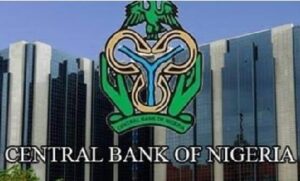Reasons Buhari’s Aide Challenges CBN on N35trn Claim
Reasons Buhari’s Aide Challenges CBN on N35trn Claim

An advisor to former President Muhammadu Buhari has disputed the assertion made by Central Bank of Nigeria (CBN) Governor Yemi Cardoso, who attributed the current economic difficulties in Nigeria to mismanagement of the economy during Buhari’s two terms from 2015 to 2023.
The aide contended that the amount supplied by the CBN during this period was N7.5 trillion, significantly lower than the N35 trillion cited by Cardoso.
This discussion comes as recent CBN data revealed a 14.22% increase in Nigeria’s total money supply, which rose to N107.1 trillion between January and August 2024, up from N93.77 trillion in January.
During a recent press conference outlining the outcomes of the September Monetary Policy Committee meeting, Cardoso noted, “In 2015, the money supply was around N19 trillion, and by 2023, it had grown to N54 trillion. This represents a massive increase, much of which was attributed to ‘Ways and Means.’”
He explained that the printing of N35 trillion resulted in an excess of money circulating, leading to inflation as too much currency chased a limited supply of goods.
Cardoso highlighted that ‘Ways and Means’ refers to a CBN process for lending to the government, which, lacking support from corresponding economic growth, contributed to the devaluation of the naira.
However, the Buhari aide, speaking anonymously, argued that Cardoso’s figures were misleading. He stated that the total amount borrowed via Ways and Means during Buhari’s tenure was N7.5 trillion over eight years.
“I read the report, and it’s laughable. The facts are clear. When the acting CBN Governor appeared before the National Assembly, the figures discussed were not more than N7.5 trillion for the entire duration of Buhari’s presidency,” he asserted.
The aide referenced a letter purportedly from the CBN responding to a Senate inquiry, dated January 16, 2023. This letter indicated that the total advances were accurately summarized in their appendices.
During Buhari’s presidency, the administration dealt with considerable fiscal pressures, notably due to declining oil prices and revenue. Consequently, the government increasingly turned to the central bank for financing, leading to substantial money printing.
Both Cardoso and Finance Minister Wale Edun have indicated that this monetary expansion was not matched by economic productivity, resulting in soaring inflation and a weakened currency, which adversely affected the affordability of goods and services for Nigerians.
Attempts to obtain comments from CBN and presidential officials regarding the aide’s claims have not yet elicited a response.
**Rising Money Supply**
In the meantime, the total money supply in Nigeria has surged by 14.22% to N107.1 trillion from January to August 2024, as reported by the CBN. This marks an increase from N93.77 trillion in January 2024.
The CBN also noted a monthly rise of 0.75% from N106.3 trillion in July and a 5.6% increase from N101.4 trillion in June. Year-over-year, the money supply has grown by 65% compared to N64.8 trillion in August 2023.
The money supply encompasses all currency and liquid assets in an economy at a given time, including cash in circulation and readily accessible bank deposits. The M2 measure, which includes currency outside banks, demand deposits, and quasi-money, reflects increasing liquidity in Nigeria’s economy.
This rise in liquidity poses challenges for the CBN’s Monetary Policy Committee, which seeks to balance economic growth with inflation control.
A breakdown of the money supply shows currency outside banks at N3.8 trillion, demand deposits at N31 trillion, and quasi-money at N72.2 trillion as of August 2024.
At the last MPC meeting, Cardoso linked the high money supply to rising inflation rates in the country.
A review of CBN data confirmed that the money supply grew from N18.9 trillion in January 2015 to N20.03 trillion by December 2015, and increased further from N52.83 trillion in January 2023 to N78.83 trillion by December 2023.
While increased liquidity can stimulate short-term economic growth by enhancing access to credit for businesses, it can also exacerbate inflation if production fails to keep pace with rising demand.
TRENDING SONGS
 NPMA Appeals to Nigerian Government for Compensation After Lagos Market Fire
NPMA Appeals to Nigerian Government for Compensation After Lagos Market Fire
 Rest Every Four Hours, FRSC Issues Safety Guide for Fasting Motorists
Rest Every Four Hours, FRSC Issues Safety Guide for Fasting Motorists
 NNPC Boss Ojulari Bags UK Energy Institute Fellowship
NNPC Boss Ojulari Bags UK Energy Institute Fellowship
 Shock in Anambra: Bride Disappears Moments Before Wedding
Shock in Anambra: Bride Disappears Moments Before Wedding
 Nigerian Woman Returns ₦330 Million Accidentally Credited to Her Account
Nigerian Woman Returns ₦330 Million Accidentally Credited to Her Account
 APC Don Reach Morocco?’ VeryDarkMan Reacts to Seyi Tinubu Poster
APC Don Reach Morocco?’ VeryDarkMan Reacts to Seyi Tinubu Poster
 Bride Breaks Down in Tears as Wedding Meals Were Kept Secretly While Guests Go Home Hungry
Bride Breaks Down in Tears as Wedding Meals Were Kept Secretly While Guests Go Home Hungry
 Odogwu by Day, Robber by Night: How Marriage Joy Turned Into Tragedy
Odogwu by Day, Robber by Night: How Marriage Joy Turned Into Tragedy
 Nigerian Officials Allegedly Pocket N4–6B Weekly Through Smuggling Cartels at Seme–Badagry Border
Nigerian Officials Allegedly Pocket N4–6B Weekly Through Smuggling Cartels at Seme–Badagry Border
 Ahmad Yerima: Naval Officer to Face No Sanctions After Clash with Wike – Matawalle
Ahmad Yerima: Naval Officer to Face No Sanctions After Clash with Wike – Matawalle
Share this post with your friends on ![]()













